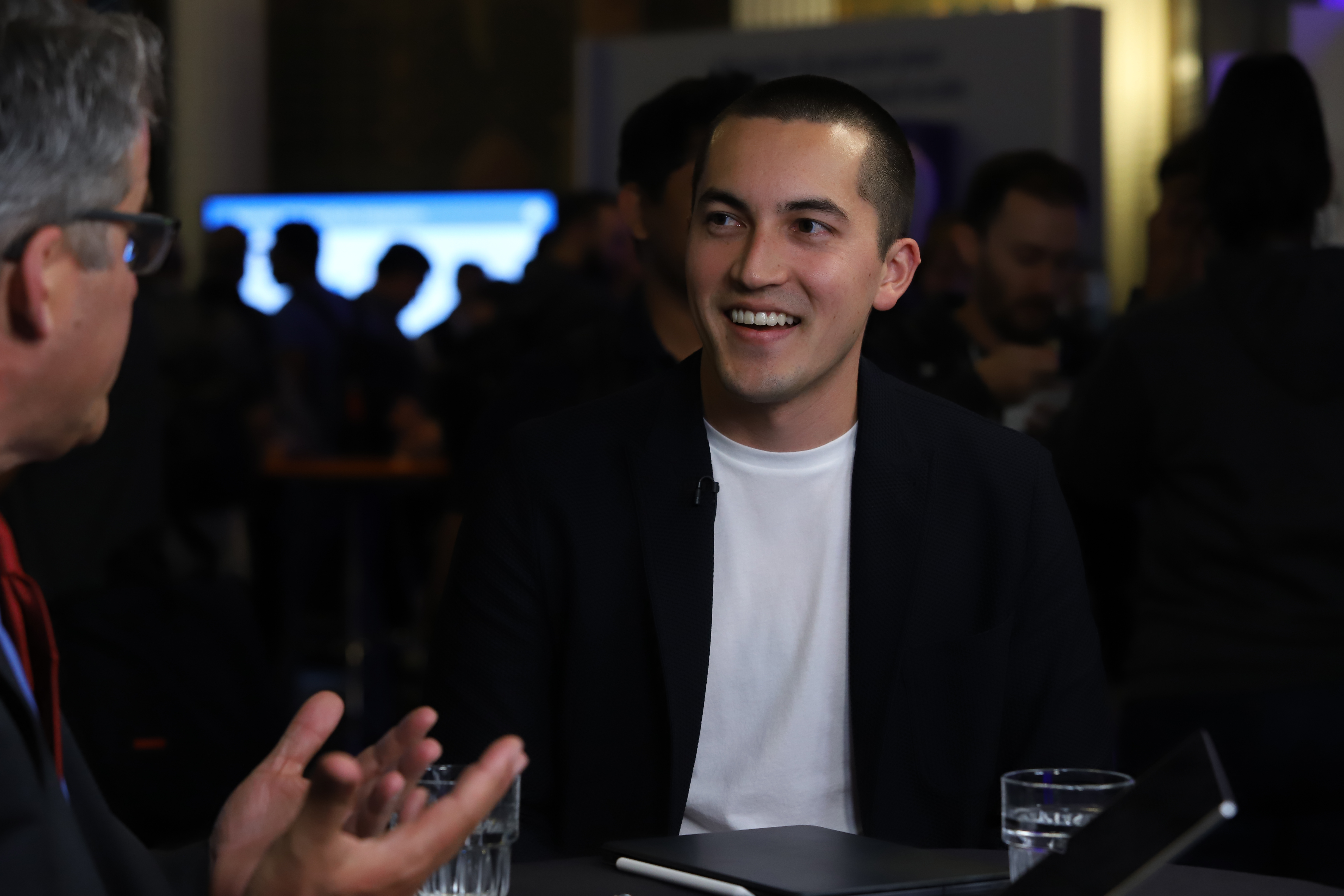
Many companies are still solving their security issues by building walls to protect sensitive information with barriers to prevent bad guys from getting in and data getting out. But with ever-increasing connectivity between devices, any effort to make an impenetrable security wall is defeated by a mind-boggling complexity of potential weak points.
“You’re one API call away from opening everything to the internet,” said Mitchell Hashimoto (pictured) founder and chief technology officer of HashiCorp Inc. “This mindset of castle and moat … worked totally fine in a physical, traditional environment but completely breaks down in the cloud world where there are no four perimeters anymore.”
Hashimoto spoke with Jeff Frick (@JeffFrick), host of theCUBE, SiliconANGLE Media’s mobile livestreaming studio, during the PagerDuty Summit in San Francisco. They discussed HashiCorp’s mission to simplify navigating the complexities of multicloud, including cloud security (see the full interview with transcript here). (* Disclosure below.)
Simplifying cloud adoption complexities
HashiCorp started as an open-source community aiming to find solutions to the complexities of cloud adoption.
“We never expected to start a business around this,” Hashimoto said. However, he soon became aware that he was not alone in experiencing problems getting a handle on cloud.
“The amount of people that had the problem I was facing personally was orders of magnitude more than I expected,“ Hashimoto said. That number continues to grow as the complexity of cloud technology continues to expand without pause.
“It’s not like cloud adoption finished and the next thing started,” Hashimoto stated. “Companies are dealing with the complexity of trying to move to cloud; they’re trying to get more out of their physical infrastructure; they’re trying to adopt Kubernetes. And now people are starting to peck at them about serverless. The complexity is a bit crazy.”
You can’t build castles in the cloud
Adding security to HashiCorp’s product mix was another move inspired by the need for a different solution to an existing problem. “No one thought … saving somebody’s personal information in plain text in a database is a good idea,” Hashimoto said. “Everyone said this should be encrypted, but encryption is hard.”
Taking the easy way out, smaller companies delayed taking security measures while larger ones built barriers to keep the data safe. Nobody has a workable long-term plan. Seeing the need for a solution to “make cloud infrastructure security, approachable by anybody,” Hashimoto decided to seize the opportunity. “If someone’s going to do it, why not me?” he asked.
The result was Vault, HashiCorp’s solution for managing and protecting sensitive data.
“Vault is one of those tools that we have individuals using it and we have the world’s largest companies [using it],” Hashimoto said. “Almost 10% of the Global 2000 are paying customers of Vault. Many more are open-source users, and it scales that entire spectrum.”
HashiCorp is currently focused on perfecting service mesh with its Consul multicloud service networking platform, now available on Microsoft Azure. “Networking has a bullseye on it,” Hashimoto stated. “People are looking at what does networking mean in a cloud world. And service mesh appears to be the way that is going to happen. We’re going to work with everything — containers, Kubernetes, VMs, physical infrastructure. We’re going to make it all work across multiple data centers.”
Watch the complete video interview below, and be sure to check out more of SiliconANGLE’s and theCUBE’s coverage of the PagerDuty Summit. (* Disclosure: TheCUBE is a paid media partner for the PagerDuty Summit. Neither PagerDuty Inc., the sponsor for theCUBE’s event coverage, nor other sponsors have editorial control over content on theCUBE or SiliconANGLE.)
Photo: SiliconANGLE
Since you’re here …
… We’d like to tell you about our mission and how you can help us fulfill it. SiliconANGLE Media Inc.’s business model is based on the intrinsic value of the content, not advertising. Unlike many online publications, we don’t have a paywall or run banner advertising, because we want to keep our journalism open, without influence or the need to chase traffic.The journalism, reporting and commentary on SiliconANGLE — along with live, unscripted video from our Silicon Valley studio and globe-trotting video teams at theCUBE — take a lot of hard work, time and money. Keeping the quality high requires the support of sponsors who are aligned with our vision of ad-free journalism content.
If you like the reporting, video interviews and other ad-free content here, please take a moment to check out a sample of the video content supported by our sponsors, tweet your support, and keep coming back to SiliconANGLE.